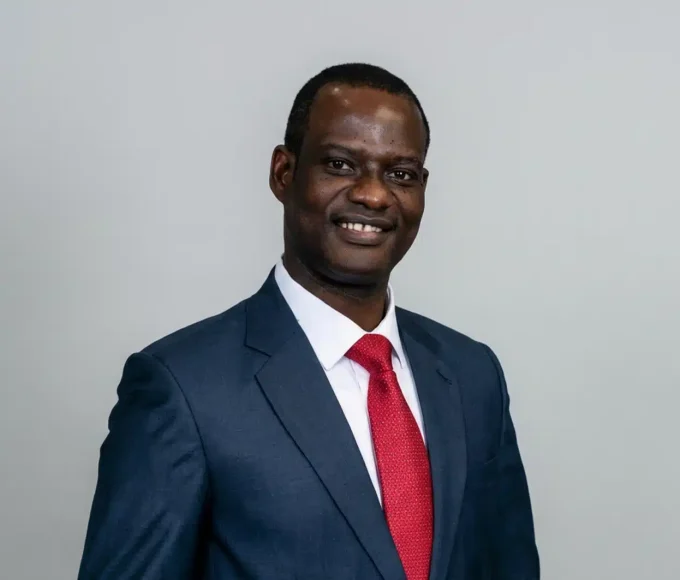
From the streets to offices, restaurants, banks, hospitals, and hotels across Nigeria, a disturbing pattern has emerged. Those employed, the very people meant to form the backbone of the nation’s economy, are increasingly turning to begging as a means of survival.
A quiet plea at the end of service, a humble “anything for the boys?” from a security guard, or a whispered request from a waitress asking for “weekend support”, these are everyday experiences for Nigerians navigating daily life. The lines between work and welfare, dignity and desperation, have blurred.
While begging has long existed in Nigeria, what makes the current wave different and more alarming is that it now includes the working class. Paid employees, who once held their heads high with pride in earning a living, are being pushed into the margins by an economic storm that many blame on the Tinubu administration’s policies.
The Collapse of a Working Economy
When President Bola Tinubu assumed office in May 2023, he pledged bold reforms aimed at stabilising Nigeria’s economy and ending the culture of “government waste.” His now-infamous inaugural declaration, “Subsidy is gone!” marked a turn in the country’s economic direction.
Since then, his administration has implemented a string of reforms. The removal of fuel subsidies has led to a rise in transportation and goods prices.
Naira floatation, which allowed market forces to determine the exchange rate, led to a currency freefall and a spike in the cost of imports. Electricity tariff hikes resulted in many households and small businesses now paying far more for less power.
No wage adjustment for public or private sector workers to match inflation, creating a weak or absent social safety net for the most vulnerable.
These policies have resulted in an economy restructured on paper, but one that is collapsing to the ground level in real life.
Numbers That Tell a Story of Hardship
Economic data paints a bleak picture: food inflation stands at over 40 per cent, the highest in decades. The naira has lost over 70 per cent of its value since May 2023. Fuel prices have tripled in many states.
Unemployment and underemployment remain alarmingly high, particularly among young people. Meanwhile, salaries have remained flat. Nigerian households now spend more than 70 per cent of their income on food alone, leaving little to nothing for rent, healthcare, school fees, or emergencies.
“Na Beg I Dey Beg” The new Slogan
Across cities and towns, Nigerians have turned survival into a delicate dance of dignity and desperation.
At a fast-food outlet in Abuja, the security man who opens the door now smiles a little longer, lingers a little closer, and often whispers, “Boss, anything for us?” The waitress offers excellent service, then follows with, “Anything for the girls?” At banks, tellers and cleaners subtly hint that they need “something extra” for their transportation.
And sometimes, it goes higher. Office supervisors, technicians, nurses, and junior civil servants now softly beg, not because they want to, but because they have to.
I do my job. But when salary isn’t feeding me, should I die in silence?
Tinubu’s “Tough Love” Economics
The government insists these are necessary sacrifices that must be made. Tinubu’s economic advisers argue that removing subsidies and floating the naira are long overdue corrections aimed at ending decades of fiscal mismanagement. According to Finance Minister Wale Edun, the policies will “pave the way for a sustainable economy and attract foreign investment.”
But so far, ordinary Nigerians see no evidence of recovery, only deeper poverty, hunger, and helplessness.
Tinubu’s “tough love” approach is more punitive than progressive, with the burden falling disproportionately on people with low incomes while the political elite remain shielded.
You cannot reform the economy by destroying the people. Structural reforms without social protection are not reforms, they are economic violence.
Desperation Has a New Soundtrack: “God Abeg”
The phrase “God abeg”, once slang, now gospel, has become the national anthem of the hungry and underpaid. Social media is filled with stories and skits of workers making ends meet with tips, begging respectfully in their uniforms, or crying silently behind their desks.
What’s unfolding is not just an economic crisis; it’s a humanitarian emergency wearing a tie and ID badge.
The Social Cost: From Dignity to Dependency
The rise in begging among the employed has more profound consequences: workers’ mental health is deteriorating, as people struggle with shame, anxiety, and hopelessness.
No trust in leadership, especially among young professionals who feel betrayed by the system. The informal economy is swelling, with many taking on side hustles that are neither secure nor dignified.
In a country with such vast wealth and potential, it is unthinkable that those who work must also beg. But that’s the reality in Nigeria today. Until economic reforms are matched with real human-centred relief, millions of working Nigerians will remain trapped in the cycle of “hustle and hope,” where a smile masks hunger and a handshake hides helplessness.
For now, the doors still open, the meals are still served, and the jobs are still done, but often, they end with the same quiet question: “Anything for me?”
Read More:
- Trump Threatens Extra 10% Tariffs on BRICS Supporters – Nigeria and Other West African Countries Could be Affected
- Uganda’s Ruling Party Backs 80-Year-Old President Museveni for Seventh Term in 2026 Election
About The Author
%s Comment
Leave a Reply Cancel reply
Related Articles
Tanzania Eyes Gold Sales as Aid Declines and Infrastructure Needs Grow
Tanzania is weighing plans to sell part of its gold reserves to...
ByWest Africa WeeklyJanuary 29, 2026Mali Says Reports of New Three-State Sahel Currency Are False but Talks Continue on Economic Integration
Mali’s government has rejected claims that it and its neighbours, Burkina Faso...
ByWest Africa WeeklyJanuary 28, 2026CBN Upgrades Opay, Moniepoint, Kuda and Others to National Licences
The Central Bank of Nigeria has upgraded the operating licences of several...
ByWest Africa WeeklyJanuary 28, 2026After Taiwo Oyedele’s Denials, Lagos State Activates ‘Power of Substitution’ Under Tinubu-Altered Tax Law, Allowing Authorities to Redirect Payments Without Court Orders
Lagos State has moved to activate a controversial enforcement provision in the...
ByWest Africa WeeklyJanuary 26, 2026













I’m very sure it’s EIC David that wrote this piece.
Make god deliver us from Tinubu.
Take a look at Kenya, instead of trying to improvise the intentionally harsh economic policies whose purpose is to keep people poor,they are fighting the system that’s keeping them poor and we should do the same in Nigeria.
I’m a civil Engineering student and my father hasn’t been able to send me any money for food or even pay my tuition fees even though our exams start next two weeks,but it’s not his fault.Its our illegitimate government that has failed us by listening to IMF and World Bank austerity policies.
If only we have a Sankara or Ibrahim Traore in our military that can overthrow these power hungry dictator,we would be hopeful for the future,but all of them are in on the action and they profit from the current situation.
I plan to do my best to undo all these hardship in Africa but I hope it would have been done before I become old enough and people won’t have to die during the time it would take for me to wield some power,just for the government that doesn’t work for them.